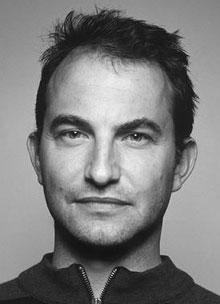
A couple of Tuesdays ago, the Marketing Association held an auction evening to support Andy McDowell and his family as he battles Parkinson’s Disease and recovers from Deep Brain Stimulation surgery.
“It was a fantastic evening and everyone, including the man himself, had a great night,” said Trevor Moodie, McDowell’s partner at The Department of Doing. “The event sold out in a jiffy and some incredible goodies were snapped up – bach getaways, weekend Euro cars, golf trips, top-shelf booze, stunning art and even a luxury launch for the day.
“But we still need your help. The auction evening raised nearly $70,000 and every cent of it will go to improving Andy’s quality of life and to his young daughters Pearl and Lily’s education.
“That’s an amazing result, but we’re still short of our dream goal of $100k. So, we’re appealing to you one last time to help raise as much as we possibly can for Andy.”
There are two ways you can help the Marketing Association hit that target:
- Make a bank deposit before Wednesday 26 November to The Gandolf Family Trust, A/C number: 12-3260-0003885-00
- Or donate now at www.givealittle.co.nz/cause/helpinghandforandy
“One last thing,” says Moodie. “There’s a special message from Andy on the website plus all the party pics from the night, so head along and check it out now because the site’s only live for the next couple of weeks.
- See earlier story here
- Read Andy McDowell’s message here: mcdowellparkinsons.co.nz
Andy McDowell was diagnosed with Parkinson’s in 2009 at the age of 43. This fund was set up to help support him and his family.
In the past two years, his life and ability to work has become increasingly difficult due to the symptoms of the condition. His voice has weakened considerably and his dyskinesia (involuntary muscle movements caused by medication) has become more overt.
McDowell is finding it more and more difficult to drive, to walk a reasonable distance or to stand for any length of time. He is concerned that it’s becoming increasingly difficult to provide for his family.
This fund will help him to leave a legacy so his young daughters Pearl and Lily have the opportunity for tertiary education in years to come. It will also help support Andy’s ongoing treatment and enhance his quality of life.
About Parkinson’s Disease:
Parkinson’s is a progressive neurodegenerative condition with no known cure. It affects more than 10,000 New Zealanders, with men more likely to get it than women. Those affected by the condition include Muhammad Ali, Michael J. Fox and Billy Connolly.
When he first received his diagnosis, Andy wrote a poem about it for his daughters. Called Smaller, he made it into a short film which won the Grand Prize and the People’s Choice Awards at the World Parkinson Congress in Canada last year.
Andy McDowell’s Journey:
Andy McDowell was finally diagnosed in 2009 aged 44 but the disease had been affecting him for over a decade.
Over the last two years his life and his ability to work has become more and more difficult as his voice has weakened considerably, his dyskinesia (involuntary muscle movements caused by medication) have become more overt and his working memory function is “not what it used to be”. He has increasingly found it more and more difficult to drive, to walk a reasonable distance or to stand for any length of time.
Although only diagnosed 5 years ago Andy McDowell’s Parkinson’s and the associated dyskinesia got to the stage where late last year, Auckland Hospital’s Movement Disorder specialists offered him a procedure called Deep Brain Stimulation (DBS). DBS is neurosurgical procedure that places electrodes and wires deep inside the brain. Those wires are then hooked up to a battery pack under the skin of the right shoulder. This procedure targets improvements in the physical (motor symptoms of people with Parkinson’s (PWP) and smooth out the fluctuations they experience with his medication.
This procedure was completed recently, in September, and he has (initially) had a positive result. He reports feeling taller, getting his smile back (it is difficult to fully appreciate how wonderful this is for him – his whole demeanour and confidence has improved) and is a lot less “locked up”. However, unfortunately, DBS has had no effect on the non-motor symptoms of Parkinson’s disease and does not halt it’s progression.
It is also worth pointing out that at this stage there is no foreseeable cure for Parkinson’s. Yes, physicians have found certain drug combinations can reduce symptoms of the disease, BUT there are still far more questions than answers when it comes to treatment. Indeed it’s been 50 years since they had the massive breakthrough that was the discovery of Levadopa.
The recent World Parkinson Congress Andy attended in Montreal reinforced to Kate and him that the only certainties are “that regular exercise, restful sleep and reduction of stress are the things people with Parkinson’s require to help them live most fully.”
Share this Post


